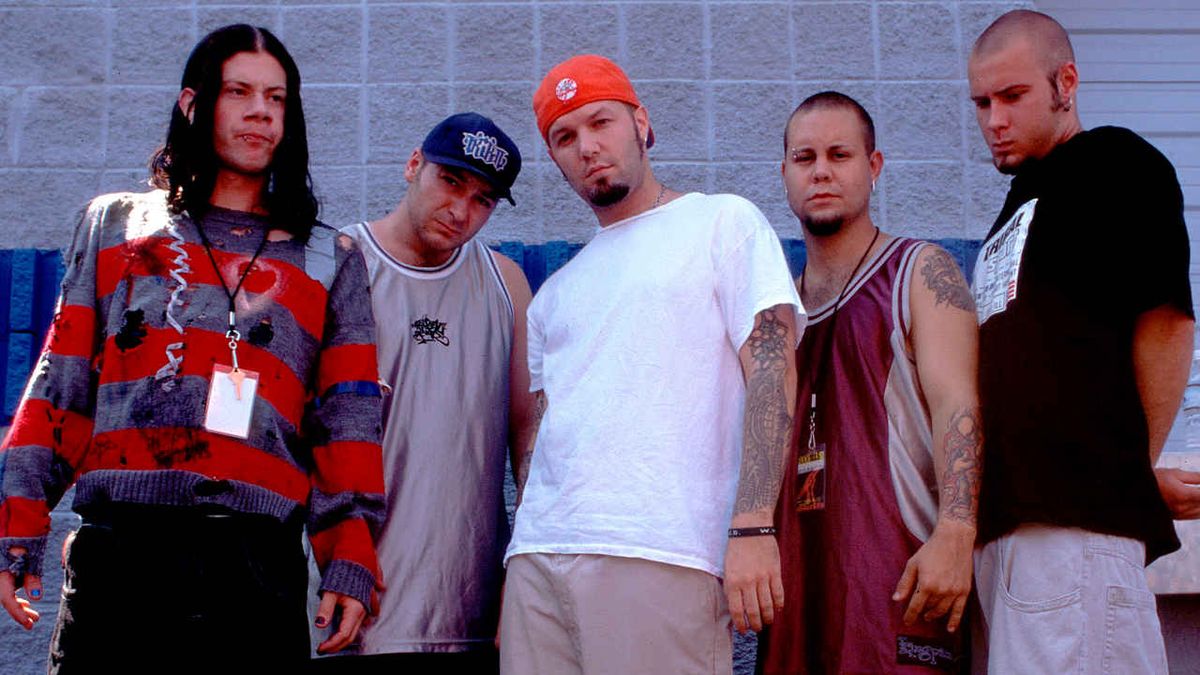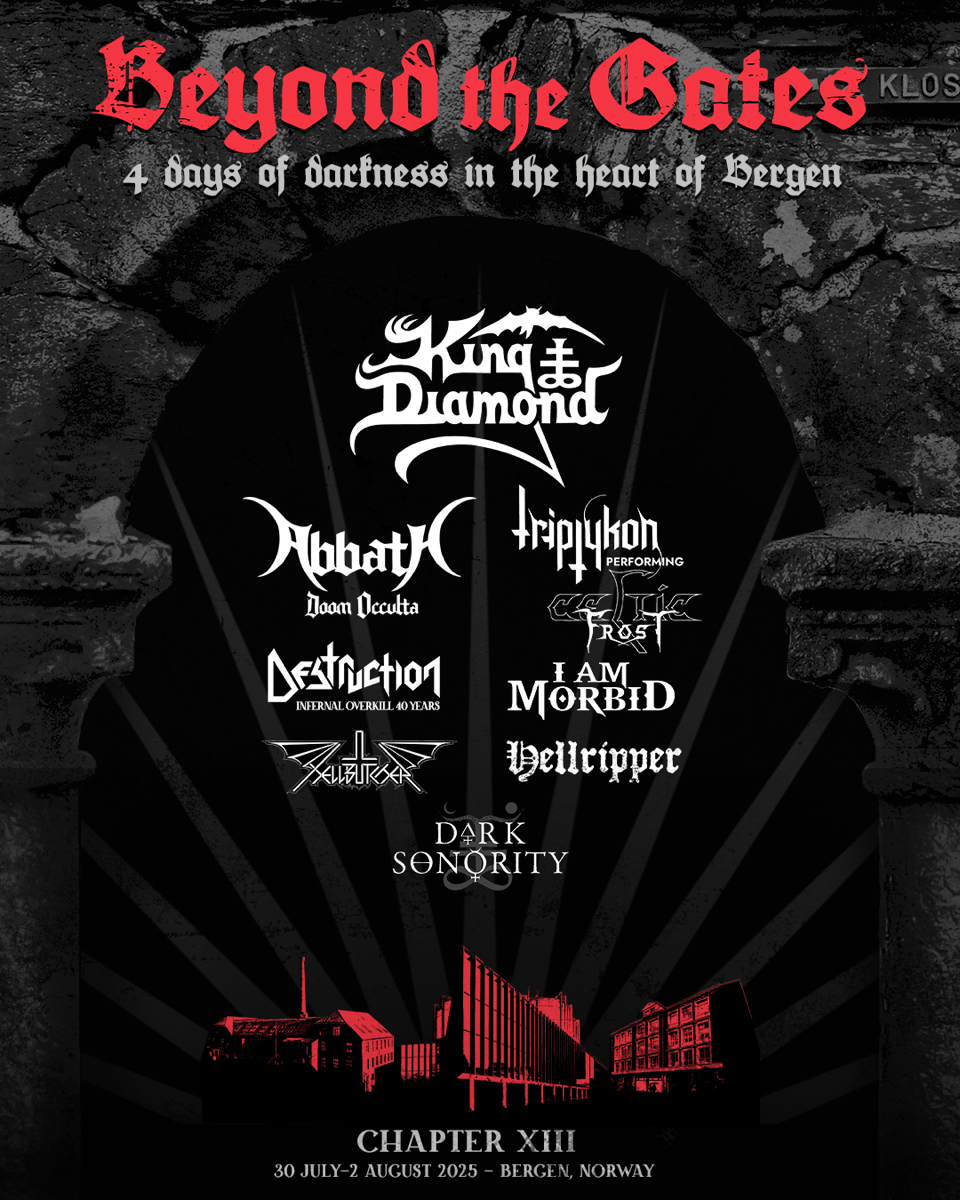
As their amusing Dad Vibes schtick recently proved, Limp Bizkit aren’t the most serious band in the world. That’s been obvious from the very beginning of their career, when these would-be superstars made an instant name for themselves with a hilariously obnoxious take on George Michael’s pop classic Faith.
Fred Durst always was a canny operator, and he knew that peppering his band’s live set with covers of well-known 80s songs in their early days would gain some attention. “We like to do aggressive versions of cheesy pop hits,” Durst told Billboard in 1998. “Songs from the 80’s make the best covers, which is why we also do J. Geils Band’s Love Stinks, Paula Abdul’s Straight Up and Beat It by Michael Jackson live.”
But the one that really stood out was their version of Michael’s 1987 smash. “I grew up on his stuff, from the Wham days!” Durst enthusiastically told Rolling Stone in 1999. The premise was as brilliant as it was simple: play it straight during the verses before turning the distortion and screaming through the chorus. No matter that the Limp Bizkit frontman didn’t have George Michael’s pipes – it was an easy trick, and one that would set audiences off to the point where the cover became a regular set closer.
When Bizkit entered the studio with Korn producer Ross Robinson in 1997 to record their debut album Three Dollar Bill Y’All, Robinson was adamant that the cover shouldn’t make the album. But Durst was insistent, playing their cover for Robinson. Caving in to the irrepressible singer, the producer relented and Faith was added to the record.
Bizkit’s debut album initially did acceptable business for an unknown band, with first single Counterfeit garnering some airplay. But it wasn’t until the video for Faith started getting traction on MTV that the band’s career really started to take off. The track peaked at number 28 on the US Billboard Alternative Chart and the band played the song live on Conan O’Brien. George Michael himself may even have played a part in the song’s success, when he was arrested in Beverley Hills in April ‘98 for performing a “lewd act” in a gentleman’s toilet.
“I didn’t expect him to get busted in that bathroom,” Durst told Billboard. “But his misfortune actually helped us. We couldn’t have asked for more of a buzz!”
It might not have been their song, but Faith was a key factor in Limp Bizkit’s initial success, placing them squarely in the middle of the burgeoning nu metal movement and helping propel Three Dollar Bill Y’all to sales of two million the US alone. But not everyone was impressed – not least certain members of the band itself, who took exception to being associated with a novelty hit. “If teeny bopper Faith nerds piss you off, ignore them,” guitarist Wes Borland told a Bizkit fan site. “I’m totally sick of Faith too.”
{ window.reliablePageLoad.then(() => { var componentContainer = document.querySelector(“#slice-container-newsletterForm-articleInbodyContent-LGcLGoCevRs3rydM47Nfzk”); if (componentContainer) { var data = {“layout”:”inbodyContent”,”header”:”Metal Hammer Newsletter”,”tagline”:”Sign up below to get the latest from Metal Hammer, plus exclusive special offers, direct to your inbox!”,”formFooterText”:”By submitting your information you agree to the Terms & Conditions and Privacy Policy and are aged 16 or over.”,”successMessage”:{“body”:”Thank you for signing up. You will receive a confirmation email shortly.”},”failureMessage”:”There was a problem. Please refresh the page and try again.”,”method”:”POST”,”inputs”:[{“type”:”hidden”,”name”:”NAME”},{“type”:”email”,”name”:”MAIL”,”placeholder”:”Your Email Address”,”required”:true},{“type”:”hidden”,”name”:”NEWSLETTER_CODE”,”value”:”XMH-X”},{“type”:”hidden”,”name”:”LANG”,”value”:”EN”},{“type”:”hidden”,”name”:”SOURCE”,”value”:”60″},{“type”:”hidden”,”name”:”COUNTRY”},{“type”:”checkbox”,”name”:”CONTACT_OTHER_BRANDS”,”label”:{“text”:”Contact me with news and offers from other Future brands”}},{“type”:”checkbox”,”name”:”CONTACT_PARTNERS”,”label”:{“text”:”Receive email from us on behalf of our trusted partners or sponsors”}},{“type”:”submit”,”value”:”Sign me up”,”required”:true}],”endpoint”:”https://newsletter-subscribe.futureplc.com/v2/submission/submit”,”analytics”:[{“analyticsType”:”widgetViewed”}],”ariaLabels”:{}}; var triggerHydrate = function() { window.sliceComponents.newsletterForm.hydrate(data, componentContainer); } if (window.lazyObserveElement) { window.lazyObserveElement(componentContainer, triggerHydrate); } else { triggerHydrate(); } } }).catch(err => console.error(‘%c FTE ‘,’background: #9306F9; color: #ffffff’,’Hydration Script has failed for newsletterForm-articleInbodyContent-LGcLGoCevRs3rydM47Nfzk Slice’, err)); }).catch(err => console.error(‘%c FTE ‘,’background: #9306F9; color: #ffffff’,’Externals script failed to load’, err)); ]]>
Sign up below to get the latest from Metal Hammer, plus exclusive special offers, direct to your inbox!
Maybe it was less Faith itself, and instead the rather unwelcome trend it kickstarted in metal. Bands now knew that turning up the angst and distortion on an old hit could potentially turn them into stars overnight; Spineshank’s While My Guitar Gently Weeps, Orgy’s Blue Monday, Machine Head’s Message in a Bottle, Coal Chamber’s Shock the Monkey, Godhead’s Eleanor Rigby… they kept coming, each more awful than the last.
And what did George Michael himself think? Well, it all depends who you ask. Durst at the time claimed he heard Michael “Loves the song,” whereas Borland shrugged that “he hates us for doing it.”
Inconclusive then, but as this is Limp Bizkit those polar opinions are par for the course. And that first divisive moment started here with Faith.


























